Working with Event Endpoints
Our customers use Constant Contact's online event management solution to create and manage events, fundraisers, online meetings, webinars, conferences, trade shows, classes and more. They create invitations and landing pages that showcase and promote their event.
What's an event?
An event is a gathering of people, for a common purpose, at a specified time and a place. There are countless aspects to events, and many are support in the event management product. Here we walk you through the process of creating an event, along with the additional features available using the Event endpoints.
Use the Event endpoints to build robust integrations that let your users create, promote, and manage their events:
- Promote - Use templates to create event invitations and registration pages
- Register - registration forms to accept online registrations 24/7
- Fees - set event fees, including early bird and late fees
- Promo Codes and Discounts - use promotional codes and discounts for event fees
- Event Merchandise - add merchandise for purchase on the event registration page
- Process Payments - Specify acceptable payment methods, collect online payments using PayPal, ProPay, WePay
- Reporting - track registrations, payments, promo code usage, merchandise purchasing and more
Anatomy of an Event
Creating an event involves using several EventSpot endpoints, depending on the features you want to include with an event, such as:
- Creating an event
- Creating event fees
- creating discounts and promotions
- Making for-sale or no-cost items available to event registrants
- Adding attributes (options) to these items
- Getting registration reports
The basic event
This work flow creates a basic event with the minimum required properties defined.
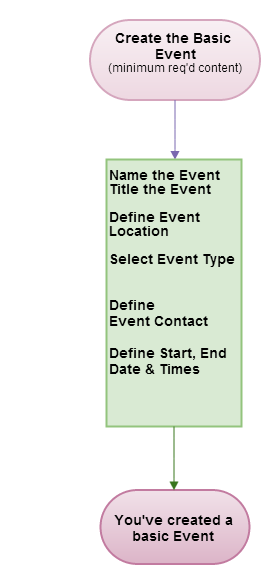
Once you've created an event, it is in DRAFT state, and not visible publicly. Here's what you can add to an event after creating it:
Payment processing
If you are charging registration fees for an event, you need to define one or more payment processing methods , and the currency accepted. The API-supported payment methods are:
- Paypal - requires a paypal_account_email linked to a business PayPal account
- Check - requires defining payable_to and payment_address
- Door - payment will be accepted at the door.
Several credit card payment options are available using the product UI, but these cannot be configured or managed using the API due to OAuth 2.0 authentication requirements with the external providers.
Event registration page
The registration page is where attendees register themselves and any guests and pay any fees. The track_information object is used to define what appears on the registration page. Here's what can be included on the registration page:
Event information
The following event information is defined in the information_sections array:
- Contact information for the event contact:
- name
- organization name
- telephone number
- Time of the event
- Location of the event
- Early and late registration fee dates
Registrant and guest information
- You can let registrants see others who have is registered for the event; doing so is considered a Best Practice.
- Whether or not guests names are required (it's a Best Practice to know who's coming to your event).
- The number of guests a registrant can bring.
Registration limits
Set the maximum number of registrants/attendees. Once the limit is reached, registration will automatically close.
Event Fees
If you are charging fees to attend your an event, create them using the fee collection endpoint.
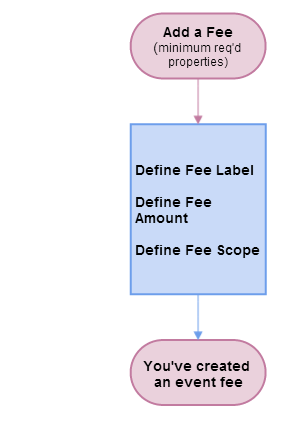
There is quite a bit of flexibility available when creating fees, especially once you consider the ability to include promotional codes (promocodes) with them.
Fee scope and type
The fee scope determines whether it applies to registrants, guests, or both. You can create early and late registration fees, and fees that are only available to registrants who use a special promotional code.
Promocodes
Promocodes give you the ability to create a wide variety of event fees discounts. The create promocode workflow illustrates the business logic involved when creating promocodes, as they can be linked to fees in several ways.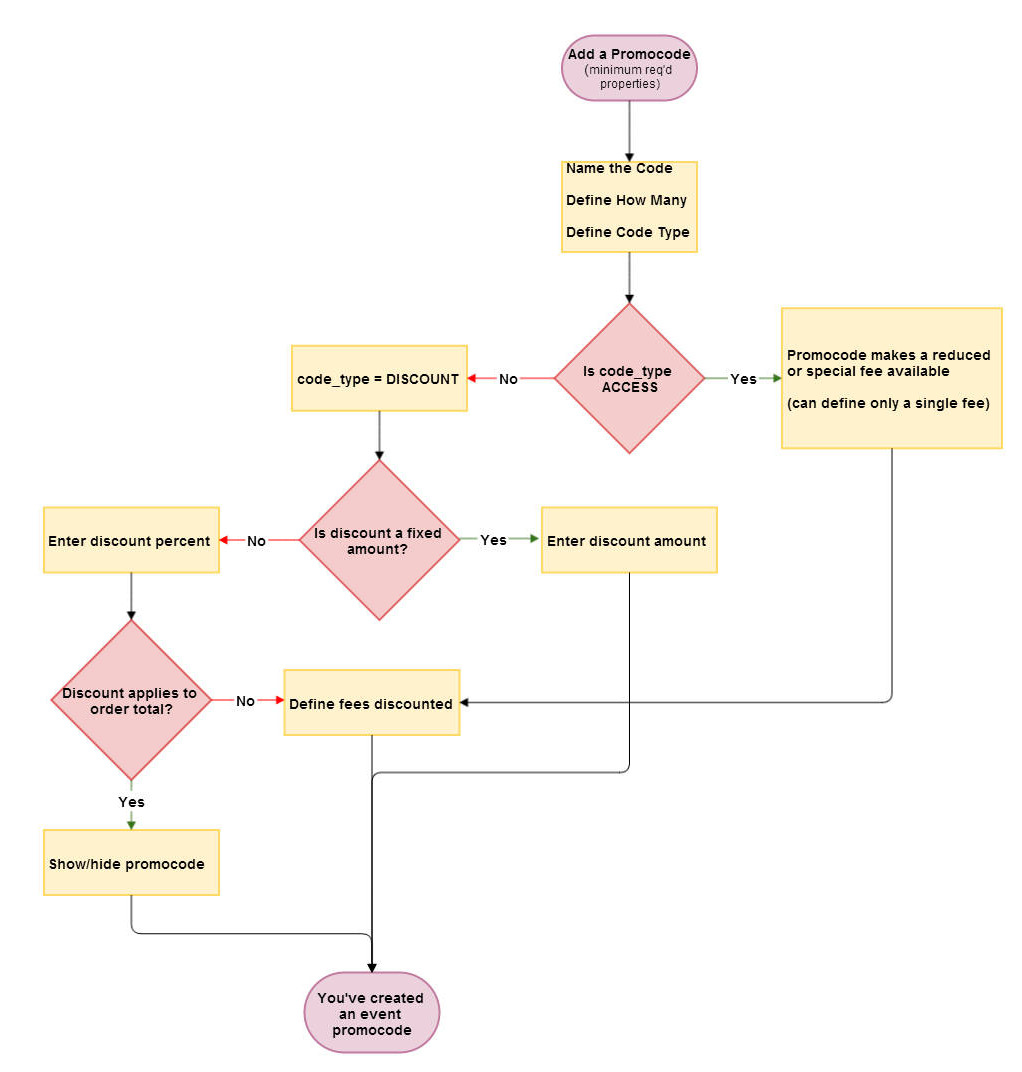
Promocode types
There are two types of promocodes:
- ACCESS - this promocode unlocks a special promotional fee that is not visible on the event registration page. an ACCESS promocode must be associated with a specific restricted fee.
- DISCOUNT - provides a percentage or fixed discount amount. You decide if the discount is to be taken off of specific publicly visible fees or off of the total registration order.
You can turn a promocode on and off, and define the total number available for an event.
Event items
You can add promotional items to the event registration page. These items can be available for sale or at no charge to event registrants.
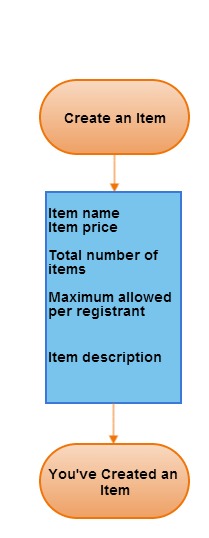
You can let registrants see how many of an item is remaining on the event registration page. Item can be modified and enhanced by adding attributes to them.
Item attributes
Attributes provide additional information and options for an item. If you're offering a shirt your event registrants, you can specify the colors and sizes available, and the initial quantity of each size/color combination. An item can have multiple attributes.
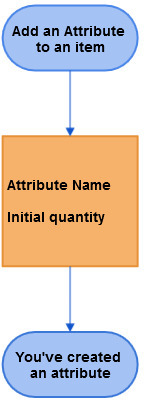
Event registration reports
You can retrieve two types of event registration reports:
- Registrant Collection Report- lists all who have registered for an event, with a few of the registration details for each registrant, including name, email address, registration and payment status, number of guests.
- Registrant Detailed Report - provides all information about the registrant and their guests, items purchased, discounts and promocodes redeemed, payment method, in addition to the information shown in the collection report.
